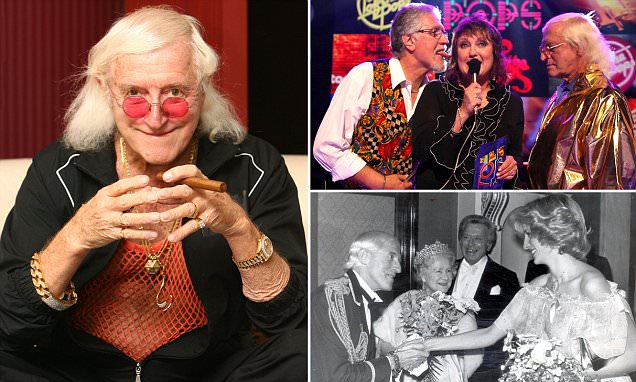The BBC is facing accusations of a whitewash after an inquiry into the Jimmy Savile scandal cleared senior managers of any blame.
The £6.5 million investigation, conducted by Dame Janet Smith, concluded that although she spoke to 117 people at the corporation who had heard rumours about the DJ’s paedophile activities, this did not necessarily mean that senior managers were aware.
Liz Dux, a lawyer representing some of the victims, described the inquiry as an “expensive whitewash”.
Tony Hall, the BBC’s director-general, admitted that the corporation had covered up a “monstrous” campaign of s**ual abuse by Savile and Stuart Hall and apologised to victims.
Dame Janet’s report stated that there was no evidence to suggest that BBC bosses knew about Savile’s activities.
She told the media yesterday: “I simply could not draw the inference from the fact that some people had heard rumours that the senior managers had.” In a leaked draft of the report published last month, Dame Janet warned that another “predatory child abuser could be lurking undiscovered in the BBC even today”.
However, she amended this to conclude that no organisation could be completely confident it did not harbour a child abuser.
Dame Janet admitted that the culture of fear which silenced many victims still exists within the BBC.
Yesterday, former Radio 2 DJ Tony Blackburn threatened to sue the BBC for making him a “scapegoat” following the inquiry.
Blackburn claims he was not questioned by BBC bosses in 1971 after a 15-year-old dancer alleged that he molested her.
In response, Lord Hall argued that Blackburn’s evidence “fell short of the standards of evidence that such an inquiry demanded”.
Dame Janet’s review found that Savile abused at least 72 victims at the BBC, including 34 girls and boys under 16.
Eight victims were raped, including a ten-year-old.
The report also stated that the BBC missed “clear” opportunities to uncover Savile’s misconduct and demonstrated more concern for its own reputation than for the victims.
It was revealed that incidents of abuse were reported to BBC staff but victims were dismissed and staff may have helped to “procure” women to be abused.
The report paints a picture of a “bullying” culture at the BBC where presenters were treated with “kid gloves” and staff were afraid to speak out for fear of losing their jobs.
Victims who complained were often told “Keep your mouth shut, he’s a VIP”.
Lord Hall conceded that Savile’s “VIP status” was a problem created by the BBC: “Savile used his celebrity to promise access to excitement and fun and then grotesquely exploited it… We, the BBC, did that.
Jimmy Savile committed many crimes in many places.
But, uniquely, it was the BBC that made him famous.
We made him a VIP.”
The inquiry took over three years and cost £6.5 million.
It follows allegations in 2012 that Savile had s**ually abused children and young women throughout his career.
Sylvia Edwards, who was groped by Savile on Top of the Pops in 1976, said the report was “diabolical” and a “waste of time”.
She added: “How could the BBC not have known?
I think it’s atrocious.
How high do they have to be before they can say they didn’t know about it?”
As a result of the report, Lord Hall vowed to tackle the “culture of deference” at the BBC and to encourage staff to raise concerns without fear of negative consequences.
However, Dame Janet warned that the “atmosphere of fear” which allowed Savile to abuse victims still exists within the corporation.
Many staff who spoke to the review panel did so only on condition of anonymity to protect their careers.































